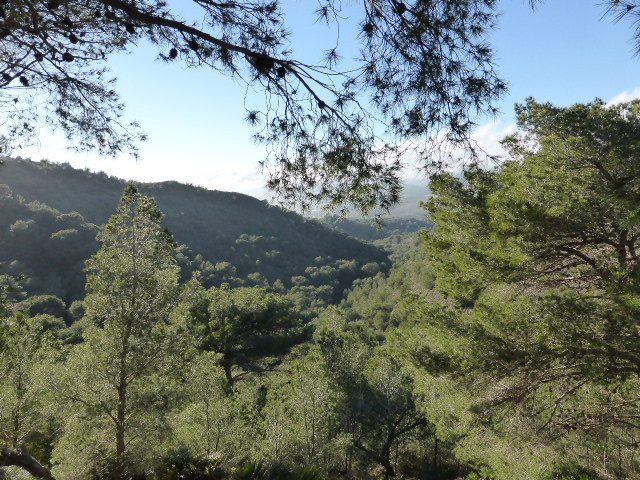Mediterranean forests will worsen if global temperature rises more than 2ºC.
The benefits provided by Mediterranean forests will decline and forests will deteriorate and absorb much of the water flowing into rivers if global temperatures rise by more than 2 degrees Celsius in the Mediterranean basin, where fires and other climate risks would increase by an average of 64%.
Consequences of rising temperatures
After analysing the 78 papers published to date on this issue, the scientists have concluded that temperate forests in four-season areas are expected to experience a significant decline if the average temperature increase in the Mediterranean basin rises above 2 degrees Celsius.
According to the analysis, if the thermometer rises above this limit set by the 2015 Paris Agreement, even species accustomed to drought, such as holm oak or white pine, will suffer the consequences and be compromised.
The study, published today in the journal 'Global Change Biology' and led by Alejandra Morán-Ordóñez (CREAF and CTFC) and Aitor Ameztegui (UdL), is the first systematic and quantitative review of the potential impacts of climate change on the provision of ecosystem services (benefits they provide) and the risk of fire, both above and below the 2ºC temperature threshold with respect to pre-industrial levels in Mediterranean countries.
The work is part of a broader report by the MedECC project coordination team to assess the consequences of global warming and seeks to complement recent Intergovernmental Panel on Climate Change (IPCC) reports on Mediterranean geographical particularities with common climatic realities.
"The Mediterranean is a small and relatively closed sea, which is warming on average 20% faster than the global annual average temperature and with particularities that cannot be assimilated to the trends in the rest of Europe or Africa," Morán-Ordóñez explained.
Towards transformation
This geographical reality conditions the increase in fire risks linked to the climate in this area.
According to the researchers, the increase in droughts in the Mediterranean basin has many possibilities of transforming the forests: "we could end up with the forests absorbing a good proportion of the available water, with less flowing into the rivers and, therefore, less available for human consumption and for maintaining the sustainable ecological flows of the watercourses", warned Morán-Ordóñez.
"We summarise the scientific evidence on how climate change will affect the provision of wood, carbon fixation, mushroom production, etc., trying to put figures, with a clear desire to avoid catastrophism", added Ameztegui.
The scientist pointed out that the intention of the work is to "synthesise the scientific evidence of the impacts of climate change on Mediterranean forests, to provide information that will help to limit the effects of warming in the Mediterranean".
The researchers' task has involved reviewing the 78 studies published to date on this issue, evaluating the current and future predictions (thanks to the development of predictive models) of forests with regard to their capacity to adapt to and mitigate climate change. EFE
Original article from EFE Verde.
